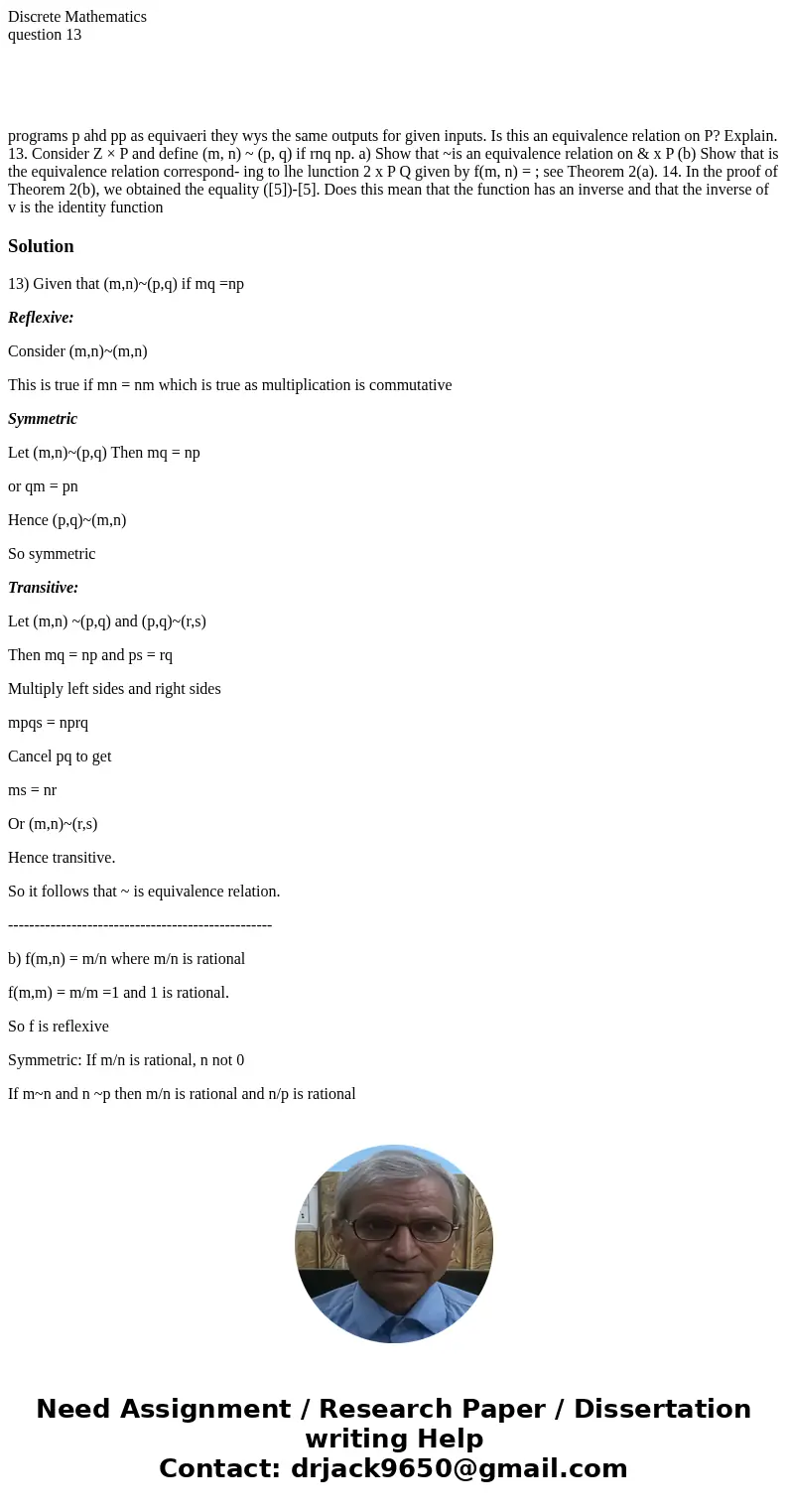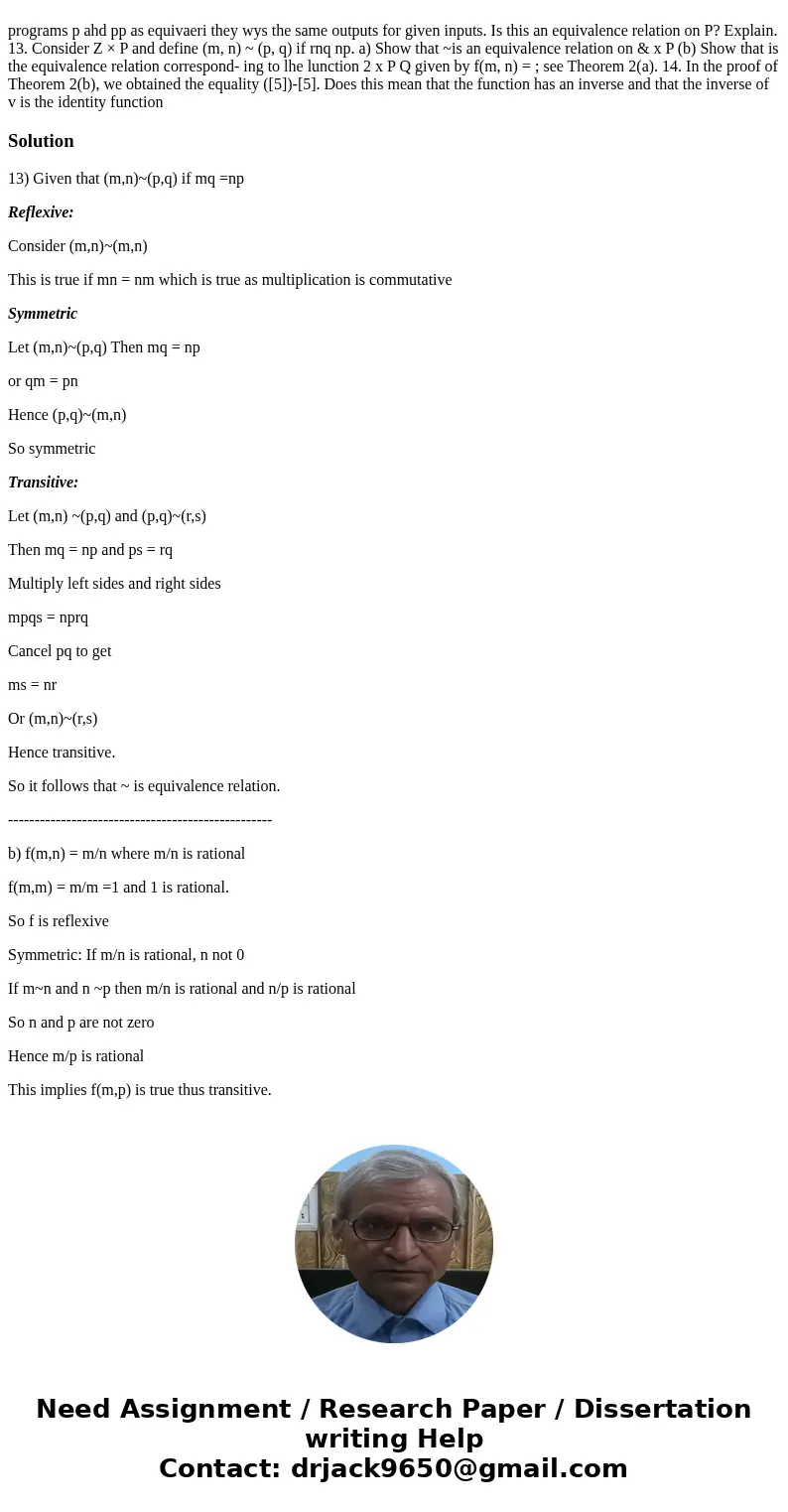Discrete Mathematics question 13 programs p ahd pp as equiva
Discrete Mathematics
question 13
Solution
13) Given that (m,n)~(p,q) if mq =np
Reflexive:
Consider (m,n)~(m,n)
This is true if mn = nm which is true as multiplication is commutative
Symmetric
Let (m,n)~(p,q) Then mq = np
or qm = pn
Hence (p,q)~(m,n)
So symmetric
Transitive:
Let (m,n) ~(p,q) and (p,q)~(r,s)
Then mq = np and ps = rq
Multiply left sides and right sides
mpqs = nprq
Cancel pq to get
ms = nr
Or (m,n)~(r,s)
Hence transitive.
So it follows that ~ is equivalence relation.
--------------------------------------------------
b) f(m,n) = m/n where m/n is rational
f(m,m) = m/m =1 and 1 is rational.
So f is reflexive
Symmetric: If m/n is rational, n not 0
If m~n and n ~p then m/n is rational and n/p is rational
So n and p are not zero
Hence m/p is rational
This implies f(m,p) is true thus transitive.


 Homework Sourse
Homework Sourse